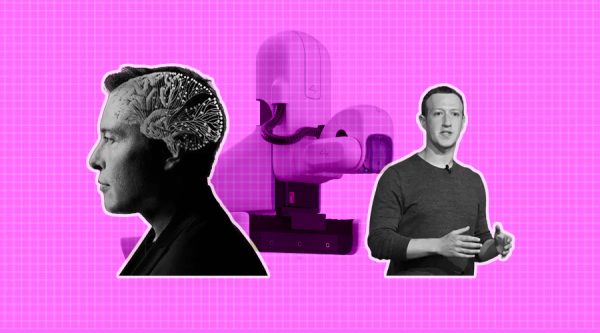He compares Neuralink chips to a “Fitbit in the skull”, which he claims is way different from a Fitbit on the wrist
The corporate world has seen some of the fiercest rivalries in the business domain. But how does it sound like tech companies vie for domination in developing questionable technologies that too for having a peek into your mind? There can be no better example than when a tech giant like Mark Zuckerberg criticizes Elon Musk’s Neuralink project. In a freewheeling interview with Joe Rogan, when asked what his take on Neuralink technology is, he played it down saying it won’t be useful for normal people in the coming 10 to 15 years. He says people wouldn’t let have chips implanted in their brains and let someone experiment with their minds with a technology that has not matured yet. Recently, Elon Musk announced that Neuralink will hold a progress update show on Halloween, October 31. Only in April, Elon Musk announced that Neuralink technology will be ready for human trials by end of 2022. “Normal people, I think, in the next 10 or 15 years are probably not going to want to get something just installed in their brain for fun. You want the mature version of that, not the one where it’s gonna get a lot better next year, and you need to get your brain implant upgraded every year,” Zuckerberg said.
In Mark’s opinion, Elon Musk is taking the brain-chip technology “super far” as Neuralink’s implant can record and activate brain waves, which Musk claimed will help people overcome conditions like obesity and disabilities. While Mark Zuckerberg’s comments prima-facie seem convincing given the fact that Neuralink is planning to collaborate with Synchron, a neuro-tech company, which is about to start human trials of a device Strentrode to help patients with Paralysis. Even if Zuckerberg’s comments are looked at as a competitor’s tirade, experts are of opinion that Neuralink needs to be deciphered through a critical lens, because technologies like these have a long history of being used for commercial interests, read Tesla, the self-driving cars, in the cover of achieving charity goals.
It doesn’t mean Mark Zuckerberg doesn’t want to talk about Facebook’s much discussed and criticized mind interface technology. When asked about the project, he said Meta is working on the neural interface technology to make the Metaverse experience as close to a real one. At the very beginning of the interview he says, there is nothing more wonderful than making a virtual technology feel like a human. But when it comes to comparing Musk’s Neuralink project with FB’s mind reading application, he says, the neural interface is only about reading signals of a human mind but not manipulating with the thinking process. “The super-hard part here is going to be having a computer give you information straight into your brain, and that’s not a thing that we’re working on,” Zuckerberg said. He envisions the way the neural interface works, for example with AR, would be something like twitching the wrists to communicate without actually speaking or texting. Explaining a scenario when the technology can be put to use, he said, “You’ll be able to have this experience in the future where you’re sitting in a meeting and your wife texts you, and it pops up in the corner of your glasses, and you want to respond, but you don’t want to like pull out your phone because that’s kinda rude,” Zuckerberg said. By using neural interface tech, a person could “twitch your wrist a little bit… like some super discreet motion that no one even knows you’re doing it and you send a message.” The technology Facebook is currently developing, pivots on wearable devices picking up brain signals from other parts of the body, a technology he says is way different from Neuralink, which he compared to a “Fitbit in the skull”, which he claims is different from a Fitbit on the wrist, that can read thoughts verbatim!!
Source: analyticsinsight.net









